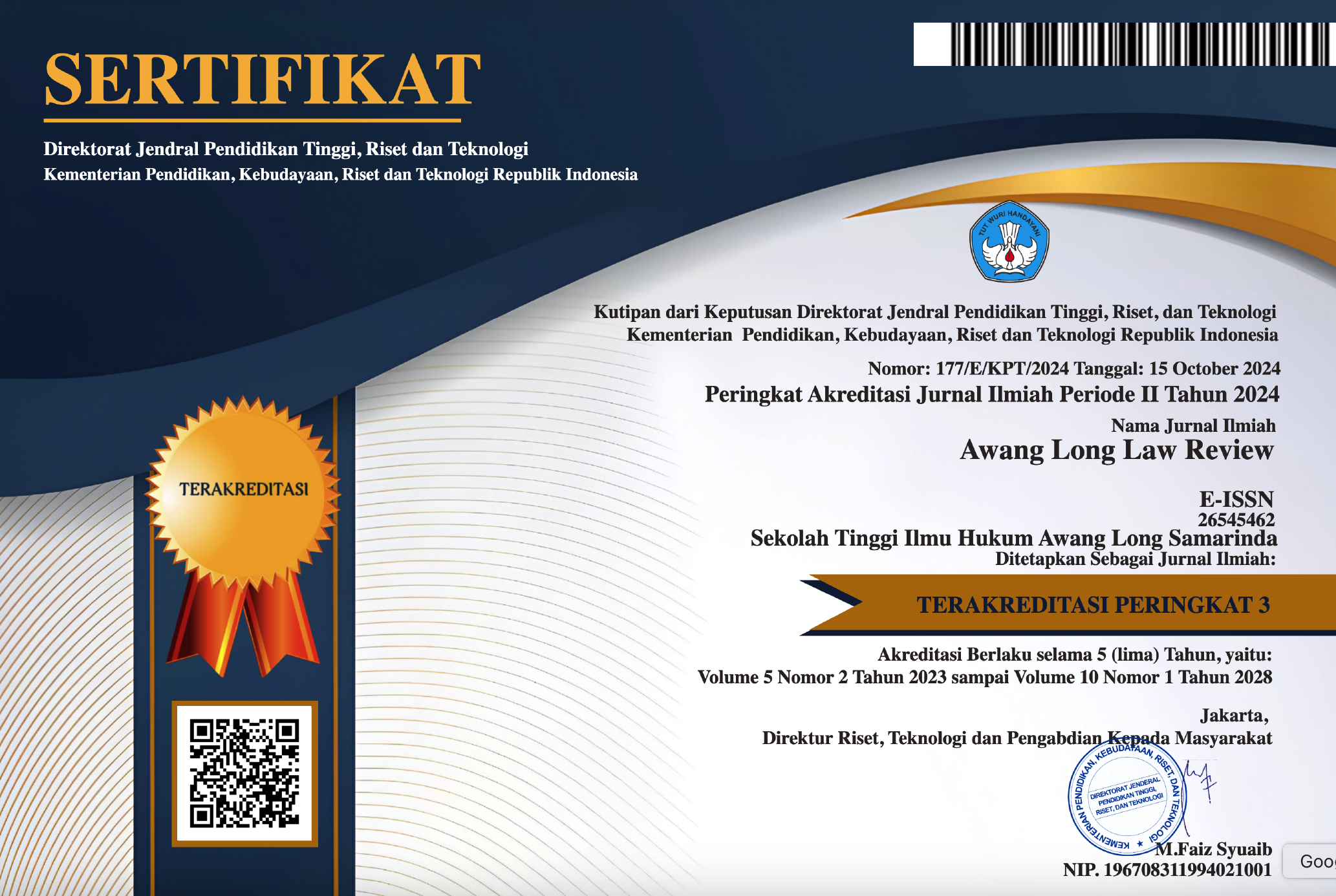EUTHANASIA IN A REVIEW OF ISLAMIC LAW AND CRIMINAL CODE
Abstract
When euthanasia was still being debated, some agreed and some refused. This is because there is an absolute limit that determines death is God and the limits of human rights. The purpose of writing about euthanasia is to find out how religious views and criminal law end this human life.
Judging from the objectives, including normative law research. The type of data that used in this study are secondary data and primary data. Data collection techniques that used in this study are the study of literature in the form of books, legislation, documents, internet and so on. Data analysis uses data deduction and data interpretation.
Based on the results of research and data analysis, it can be concluded that euthanasia is prohibited in any religion, in the code of medical ethics, it is also not permissible as well as in the rule of criminal law, while the reasons are as follows:
In Islam it said: killing one human being is the same as killing all humanity, because every human being must have a family, and have offspring and that human beings are members of the society. Killing one person indirectly will hurt the family, offspring and the surrounding society. Therefore Islam classifies murder as a grave sin after shirk (the history of Bukhari and Muslim). The killer will get a revenge in the form of hell (QS An-Nisa: 93). Criminal Law Regulations in Indonesia said that Euthanasia is a prohibited act, in the criminal law in force in Indonesia the provisions regarding Euthanasia are contained in article 304 of the Criminal Code which prohibits the existence of passive euthanasia and article 344 of the Criminal Code which prohibits active euthanasia. So Euthanasia cannot be applied in Indonesia because in addition to being contrary to Islam, it is also contrary to the Indonesian Criminal Code (KUHP).







